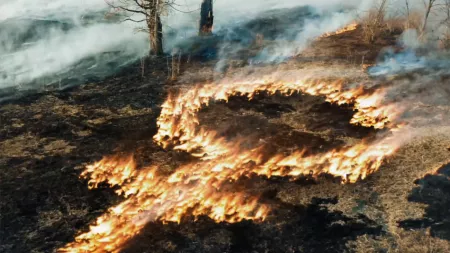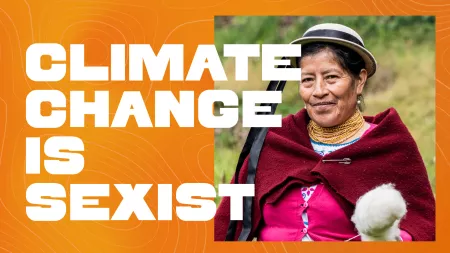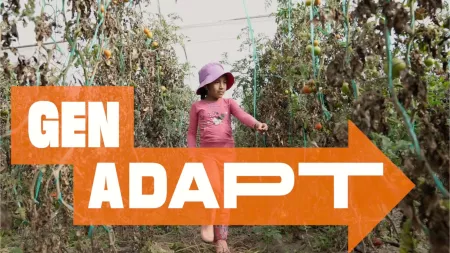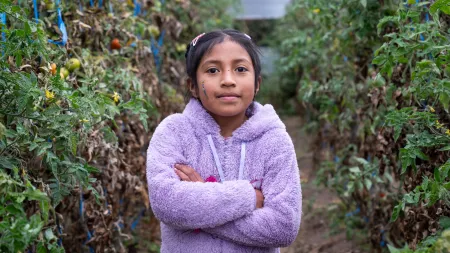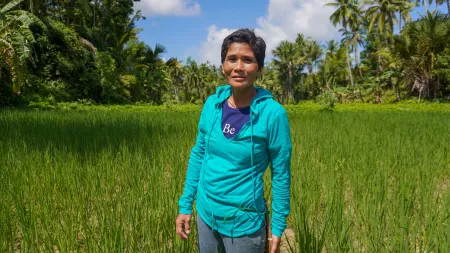Climate change is yet another form of sexist discrimination against women and girls. Why? Because women and girls are the first and the most affected by the climate emergency. But they are fighting back. Fighting for themselves, their families, and our planet.
Join us to find out who is this new generation of women and girls on the frontline of the impacts and solutions to the climate crisis. And learn how you can support them!
An environmental and a gender crisis
Climate change is not just an environmental crisis, it is also a gender crisis. What is the connection between environment and gender? Climate change exacerbates gender discrimination and exposes women to an increased risk of violence. This is already visible across the globe:
-
Bangladesh: + 50% increase in child marriages during a 30-day heatwave.
-
Somaliland: Girls spent 7 hours a day looking for water during a drought instead of going to school.
-
Globally: 84.2 million more women and girls than men and boys are food insecure, partially due to climate change impacts.
Meet GenADAPT: A generation of women and girls fighting climate change
Despite being the first and the most affected by climate change, women and girls are not giving up. On the contrary. A whole new generation of women and girls is adapting to a new tougher climate reality to survive and thrive. After Generation, X, Y, and Z, this is GenADAPT!
"If we take care of the earth, the earth will take care of us", says Perla in Ecuador. Even though she is only 8 years old, Perla decided to join her mother in a group called ‘Andean rural women against climate change’. She also helps her family to look after their agro-ecological plot, which increases resilience against drought.
Click on the button below to learn more about Perla's story and those of more GenAdapt heroes across the world.
How can YOU support GenADAPT?
You also have the power to support the powerful women and girls across the globe fighting climate change.
First, spread the word! The more people are aware of women’s disproportionate climate change impacts, the more we will be able to take action!
How? This increases pressure for GenADAPT champions to finally have their voices heard and recognized. It's unacceptable that they are not invited to the climate negotiations. For example, women represent only 35% of the participants at the COP, the UN international climate conference.
Increasing women's and girls’ participation will be one of CARE’s main demands at COP28, which starts on 30 November. We will also continue to demand that adaptation projects led by women receive financial support compatible with the climate emergency.
Together, we can make an impact that measures up to the courage of GenADAPT. So, would you like to join us? Share this page and follow our social media channels for more information.
